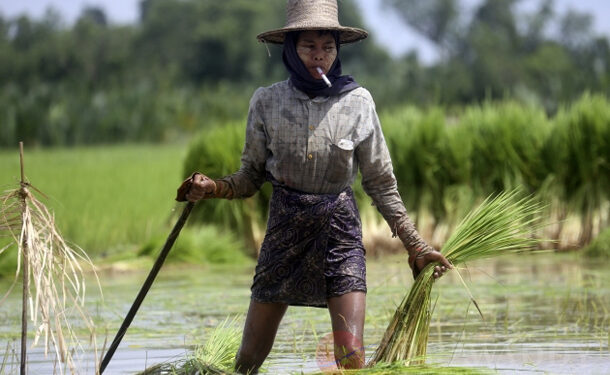RANGOON — Some 6,000 outstanding complaints of farmland seizure from the previous parliamentary body are slated to be investigated by the current legislative body, the Upper House’s farmer affairs committee said on Wednesday.
“About 6,000 letters of complaint [out of an estimated 18,000] are to be handled this parliamentary term,” committee chair Ba Myo Thein told The Irrawaddy, adding that since early April alone, the new committee had received over 80 additional letters.
Among those accused of farmland confiscation are the Burma Army, government ministries and private development companies. According to the letters of complaint, the land was allegedly seized for the development of infrastructure and industrial zones, with most incidents occurring in Mandalay Division and Karen State, Ba Myo Thein said.
He added that the Parliament’s first move will be to form a commission with relevant MPs to review the complaints and conduct field investigations. He also told The Irrawaddy that the issue of farmland confiscation could not be avoided in a country where development and infrastructure are considered essential for growth.
“These complaints are a consequence of neglecting our country’s existing laws,” he said. “We will try to solve this problem in accordance with land use laws.”
On Wednesday, the state-owned Global New Light of Myanmar said that, to date, the committee had revealed that some 200,000 acres of farmland had been confiscated nationwide, although Ba Myo Thein was unable to confirm this figure for The Irrawaddy.
From a legal standpoint, Ko Ni, a lawyer, does not think that the handling of the issue will be so straightforward.
“There’s no such distinction within existing laws between military-owned land and ministry-owned land. There’s only state-owned land,” he said.
He explained that under Burma’s military regime, hundreds of thousands of acres of land were confiscated by the military, government ministries and private companies for multiple reasons. There is not yet a law in place to address these particular cases.
“A specific law should be created that includes relevant references [to military-owned and ministry-owned land] so that there will be no controversy [going forward] in regards to how to effectively [and legally] handle land grab issues,” Ko Ni said.

















